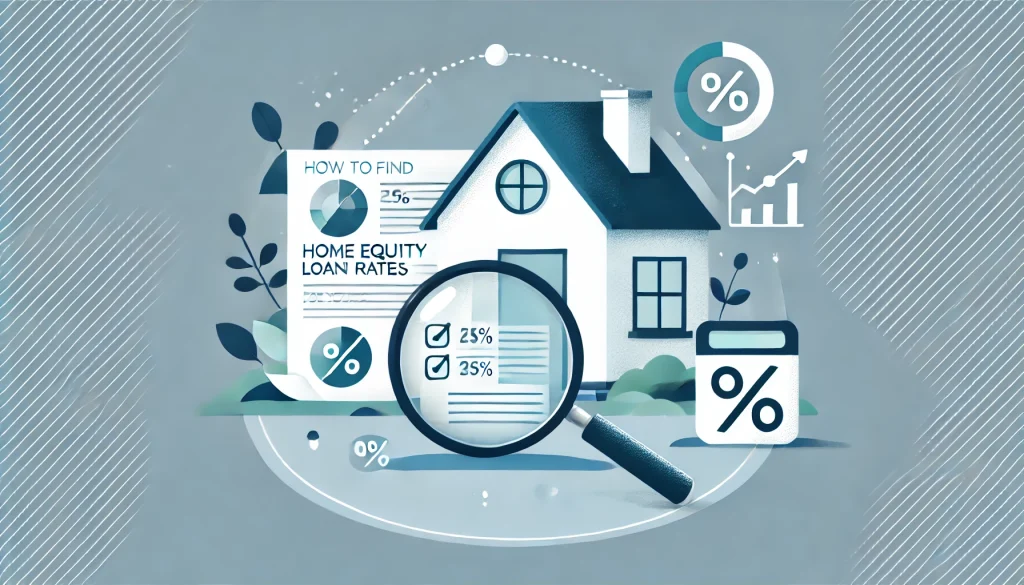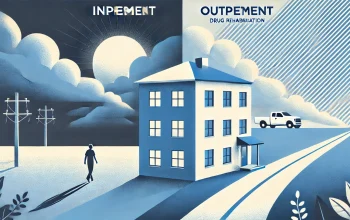Securing the Best Home Loan Rates in the US: A Comprehensive Guide

Buying a home is one of the most significant financial decisions you’ll make in your lifetime. For most Americans, securing a mortgage is a critical step in this process, and the interest rate you lock in will have long-term financial implications. Understanding how to secure the best home loan rates in the US can save you thousands of dollars over the life of your loan, helping you build wealth and equity more effectively.
In this detailed guide, we will break down the factors that influence home loan rates, discuss how you can improve your chances of getting the best rates, and highlight key considerations when choosing the right mortgage for your needs.
Table of Contents
What Are Home Loan Rates?
Home loan rates, or mortgage rates, are the interest rates lenders charge on loans used to buy a home. These rates are expressed as a percentage of the loan principal and can either be fixed for the life of the loan or adjustable, meaning they change based on market conditions.
Mortgage rates play a significant role in determining your monthly payments and the total interest paid over the term of the loan. Even small changes in the interest rate can make a huge difference in the overall cost of your home.
For instance, a 30-year fixed mortgage on a $300,000 home at a 4.5% interest rate would result in approximately $247,220 in interest payments over the life of the loan. But if you could secure a 4% rate, you’d pay about $215,608 in interest — a savings of over $30,000!
Factors That Influence Home Loan Rates
Several factors impact the mortgage rate a lender will offer. Understanding these variables can help you better position yourself for the most competitive rates.
1. Credit Score
Your credit score is one of the most critical factors that determine your home loan rate. It represents your creditworthiness and how likely you are to repay the loan. Lenders use your credit score to assess risk. Generally, a higher credit score leads to lower interest rates.
- Excellent Credit (740 and above): If you have excellent credit, you are likely to receive the best mortgage rates available.
- Good Credit (700-739): You may still qualify for competitive rates, but not as low as those with excellent credit.
- Fair Credit (620-699): Your interest rates will likely be higher, and you may need to explore specialized loan programs.
- Poor Credit (below 620): You may struggle to qualify for traditional mortgages, and if approved, the rates may be substantially higher.
Tip: Before applying for a mortgage, work on improving your credit score by paying down debts, making timely payments, and avoiding opening new lines of credit.
2. Loan Term
The term of your mortgage — typically 15 or 30 years — will also impact your interest rate. Shorter-term loans generally offer lower rates but come with higher monthly payments.
- 15-Year Fixed-Rate Mortgage: These loans usually have lower rates but require larger monthly payments. They can save you a significant amount of interest over the life of the loan.
- 30-Year Fixed-Rate Mortgage: This is the most common option for homebuyers. While the interest rate is typically higher, the lower monthly payments make it more affordable.
Tip: If you can afford a higher monthly payment, opting for a shorter loan term could save you money in the long run.
3. Loan Type
There are several types of home loans, each with its own set of interest rates and qualification requirements:
- Conventional Loans: These loans are not insured by the federal government and typically require a higher credit score. However, they often offer the best rates for qualified buyers.
- FHA Loans: Backed by the Federal Housing Administration, FHA loans are more accessible to first-time homebuyers and those with lower credit scores. Interest rates are often competitive, but borrowers must pay mortgage insurance.
- VA Loans: Available to veterans and active-duty military personnel, VA loans often come with very favorable rates and no down payment requirement.
- Jumbo Loans: For loans that exceed conforming loan limits, jumbo loans typically come with higher rates due to increased risk.
Tip: Research different loan types and find the one that fits your financial situation. VA or FHA loans might offer better rates and terms for those who qualify.
4. Loan-to-Value Ratio (LTV)
The LTV ratio is the amount of your mortgage divided by the appraised value of the home. The lower your LTV ratio, the less risk you pose to the lender, which can result in better rates.
For example, if you put down 20% on a home, your LTV is 80%. Lenders often give better rates to borrowers with an LTV of 80% or lower.
Tip: Try to save for a larger down payment to reduce your LTV ratio and secure a better rate.
5. Economic Factors
Mortgage rates are influenced by broader economic trends, including inflation, unemployment, and the actions of the Federal Reserve. While these are outside your control, keeping an eye on market conditions can help you time your mortgage application to lock in a favorable rate.
6. Points and Fees
Some lenders allow you to pay discount points upfront to lower your mortgage rate. One point typically equals 1% of the loan amount and can lower your interest rate by a fraction of a percentage. This can make sense if you plan to stay in the home long enough to benefit from the lower monthly payments.
How to Secure the Best Home Loan Rates
Securing the best home loan rates requires preparation, research, and often negotiation. Here’s a step-by-step guide to improving your chances of getting a great mortgage rate:
1. Improve Your Credit Score
As mentioned earlier, your credit score is crucial. Before applying for a home loan, review your credit report and address any discrepancies or outstanding debts. Focus on:
- Paying down high credit card balances.
- Making on-time payments for all your bills.
- Avoiding new debt in the months leading up to your loan application.
Tip: Use a free credit monitoring service to track your progress and ensure you’re on the right track.
2. Save for a Larger Down Payment
A down payment of at least 20% will help you avoid private mortgage insurance (PMI) and secure better loan terms. If you can’t afford 20%, many lenders offer loans with lower down payments, but these may come with higher interest rates.
Tip: Set a budget and savings goal to ensure you can afford a down payment that will help you get the best rates.
3. Shop Around for Lenders
Mortgage rates can vary significantly between lenders, so it’s essential to shop around. Get quotes from multiple sources, including:
- Banks: Traditional banks often offer competitive rates, especially if you already have an account with them.
- Credit Unions: Credit unions may offer lower rates to their members, often with fewer fees.
- Online Lenders: Many online lenders provide competitive rates with the convenience of an entirely digital application process.
When comparing rates, make sure to review all terms and conditions, including fees, closing costs, and prepayment penalties.
4. Lock in Your Rate
Once you find a favorable rate, ask your lender about locking it in. A rate lock guarantees your rate won’t increase before closing, even if market rates rise. Rate locks are typically offered for 30, 45, or 60 days, depending on how long it takes to finalize your loan.
Tip: If you anticipate a lengthy closing process, ask for a rate lock with a longer term.
5. Consider Paying Points
If you have the cash upfront, paying discount points can reduce your mortgage interest rate. This makes sense if you plan to stay in the home long-term, as the savings on monthly payments will add up over time.
The Role of Mortgage Brokers in Securing Low Rates
Working with a mortgage broker can be beneficial when shopping for home loans. Brokers act as intermediaries between you and multiple lenders, helping you compare rates and terms. They often have access to wholesale mortgage rates that may not be available to the general public.
However, be aware that brokers charge fees for their services, which can add to your closing costs. Make sure to ask about their fee structure upfront and ensure the potential savings on your mortgage outweigh the broker’s fees.
Should You Choose a Fixed-Rate or Adjustable-Rate Mortgage (ARM)?
One of the most important decisions when securing a mortgage is whether to opt for a fixed-rate mortgage or an adjustable-rate mortgage (ARM). Each has its advantages, depending on your financial situation and future plans.
Fixed-Rate Mortgage
A fixed-rate mortgage offers a consistent interest rate and monthly payment over the life of the loan, making it easier to budget.
Pros:
- Stability in monthly payments.
- Protection from interest rate increases.
Cons:
- Typically higher initial rates than ARMs.
- Less flexibility if rates drop significantly in the future.
Adjustable-Rate Mortgage (ARM)
An ARM offers a lower initial rate for a fixed period (usually 5, 7, or 10 years), after which the rate adjusts annually based on market conditions.
Pros:
- Lower initial rates, which can be beneficial if you plan to sell or refinance before the rate adjusts.
- Potential to save money if interest rates remain low.
Cons:
- Rates can increase significantly after the initial fixed period, leading to higher monthly payments.
- Less predictability and budgeting challenges.
Tip: If you plan to stay in your home for a long time, a fixed-rate mortgage offers more stability. If you expect to move or refinance in a few years, an ARM could save you
money.
Frequently Asked Questions (FAQs)
1. How are mortgage rates determined?
Mortgage rates are determined by several factors, including your credit score, down payment, loan type, and current market conditions. Lenders also take into account their own risk assessment and the Federal Reserve’s actions.
2. How can I lower my mortgage rate?
You can lower your mortgage rate by improving your credit score, making a larger down payment, paying discount points, and shopping around for the best deal.
3. Can I refinance my mortgage to get a better rate?
Yes, refinancing allows you to replace your current mortgage with a new one, often at a lower interest rate. However, make sure to account for closing costs and fees to determine if refinancing makes financial sense.
Conclusion
Securing the best home loan rates in the US requires preparation, a clear understanding of the factors that affect mortgage rates, and strategic shopping. By focusing on improving your credit, saving for a down payment, and comparing loan offers, you can position yourself to get the most competitive rates available. Whether you’re a first-time homebuyer or looking to refinance, taking the time to secure a favorable mortgage rate will pay off in the long run, helping you build wealth and achieve financial stability.


